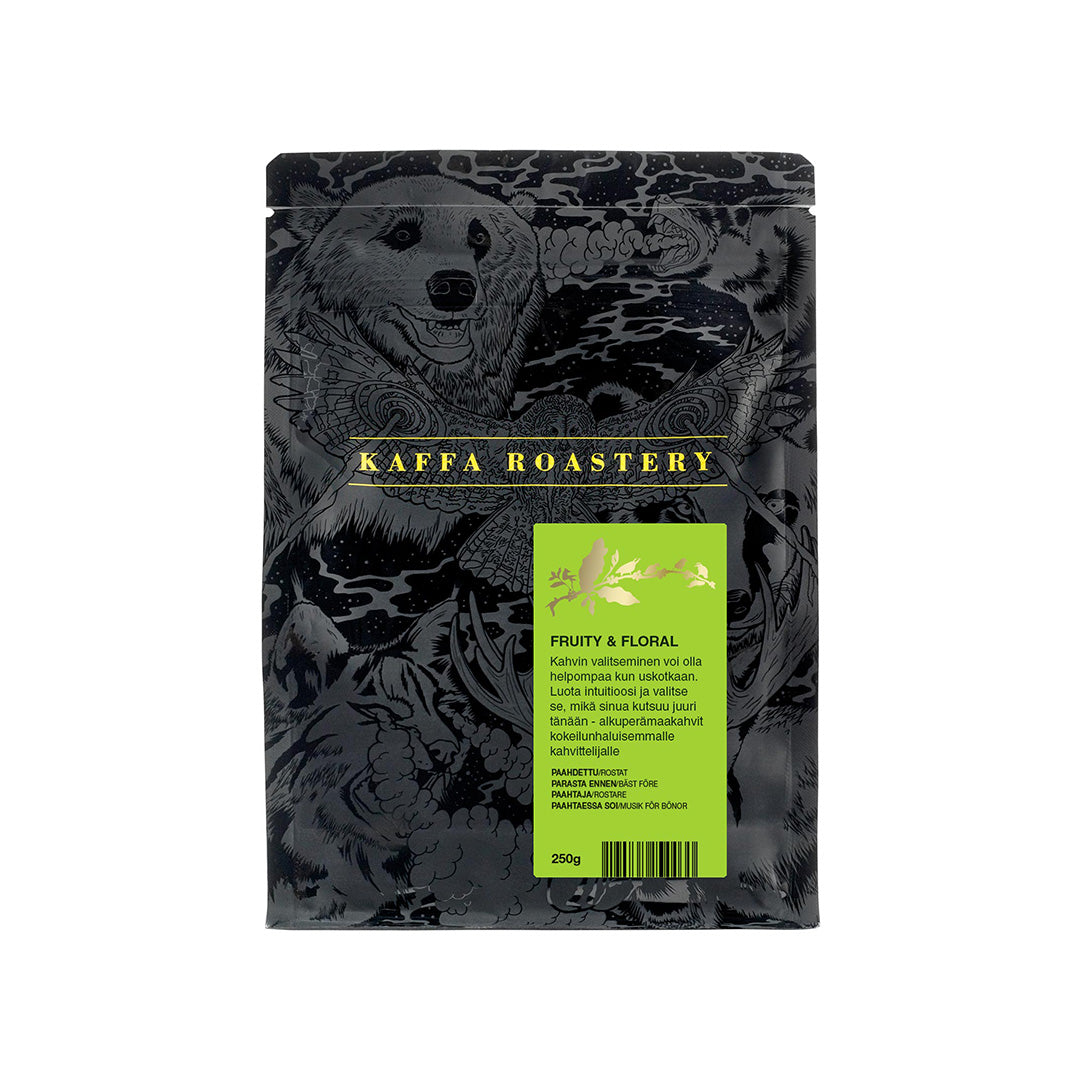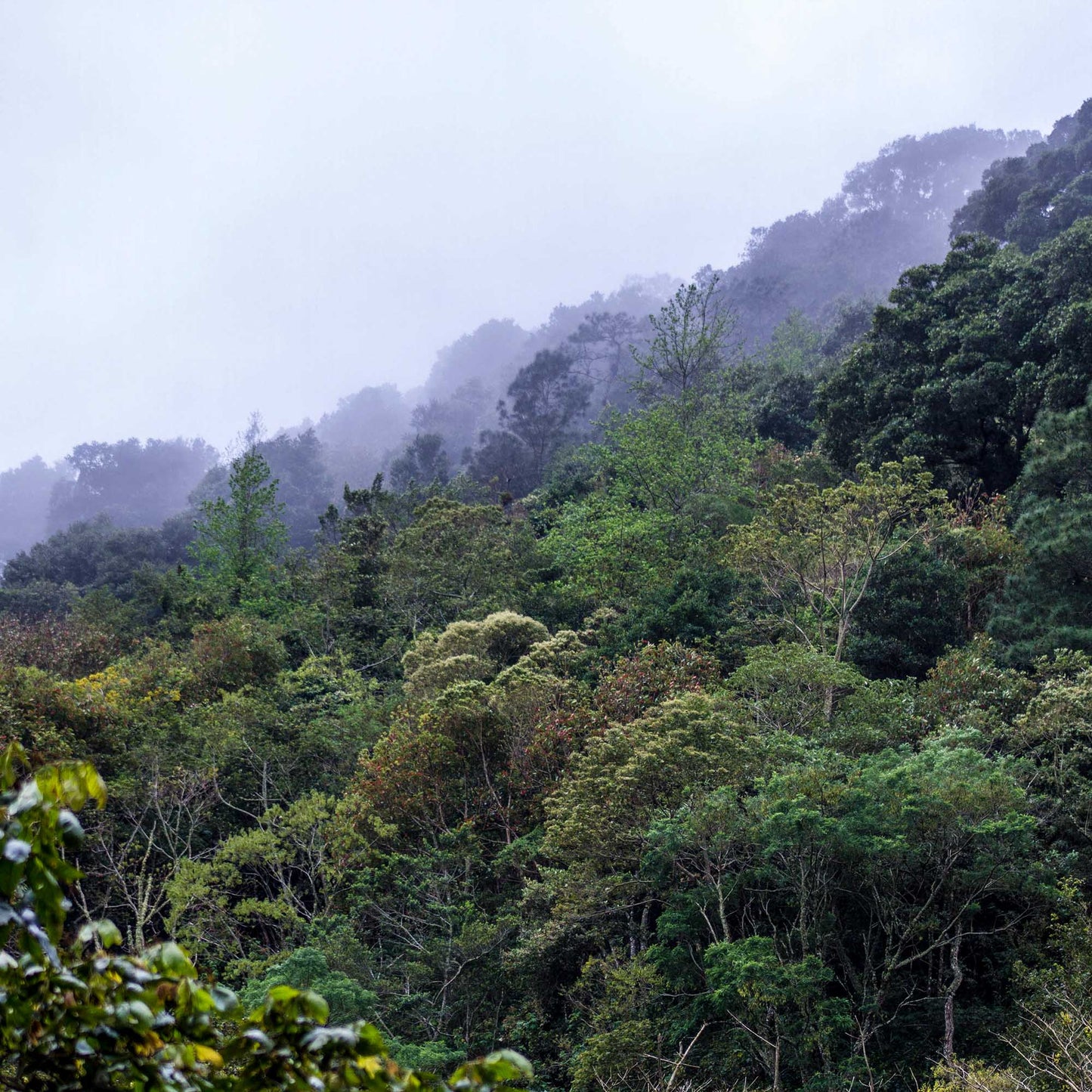Kaffa Roastery
Fruity & Floral - Ethiopia Beshasa
Fruity & Floral - Ethiopia Beshasa
Couldn't load pickup availability
100% Ethiopia, Jimma, Agaro.
VARIETAL: Heirloom
PROCESSING: Washed
ALTITUDE: 1500-1800m
FRUITY & FLORAL
Mustefa Abakeno, a dedicated coffee farmer from the Jimma zone in Western Ethiopia, manages an 18-hectare coffee farm situated at an elevation of 2,040 meters above sea level. His farm exemplifies Ethiopia’s rich coffee heritage, featuring a diverse array of coffee varieties. Mustefa’s coffee processing methods skillfully blend tradition with innovation.
At the start of his venture, Mustefa acquired a coffee de-pulping machine, enabling him to process half of his harvest as fully washed coffees. The other half undergoes the natural process, where the cherries are meticulously dried with the pulp still attached to the bean. These cherries experience a more gradual drying phase lasting 24–27 days.
In 2018, Mustefa benefited from regulatory changes that allowed him to engage directly with discerning buyers. To facilitate this, he established Beshasha, a wet mill used to process coffee both from his own farm and from other local farmers.
Mustefa’s expertise also extends to infrastructure development. He built a modern warehouse in Agaro, equipped for hulling naturally processed coffees. This investment highlights his commitment to refining and optimizing coffee cherry processing to the highest standards. In 2022, Mustefa expanded further by acquiring four new locations: Echamo, Jarso, Badeyi, and Saadi. These serve as critical collection points where cherries are carefully selected and purchased from neighboring farmers. Cherries from these stations are then transported to two main processing sites, Beshasha and Kabira.
This strategic expansion not only strengthens Mustefa’s capacity to source exceptional coffee cherries but also underscores his role as a driver of community development in coffee-growing regions. Through his initiatives, he supports the economic well-being of local farmers and preserves Ethiopia’s esteemed coffee tradition.
Mustefa Abakeno’s journey remains a source of inspiration. His unwavering commitment to excellence and the pursuit of quality in coffee production are his hallmarks. Mustefa’s dedication to innovation, quality, and his community embodies the core of the ongoing evolution and growth of the coffee industry.
Share this page



